Ranier Abengana
Topic: The Future of Work and the Crisis of Critique: Resistance as a Condition of Possibility
Supervisor: Professor Brian O'Connor
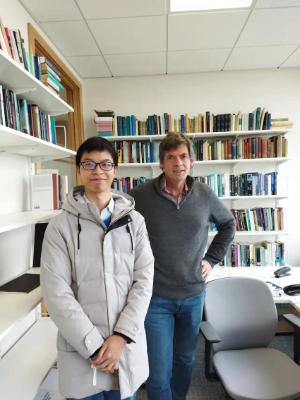 |
|---|
| Guxing Chen a visiting PhD student from China with Professor Rowland Stout, host for the visit |
Supervisor: Professor Brian O'Connor

Supervisor: Professor Maeve Cooke
View ProfileSupervisor: Assistant Professor Danielle Petherbridge
Supervisor: Professor Jim O'Shea
View ProfileSupervisor: Professor Jim O'Shea
Supervisor: Associate Professor Dragos Calma
View ProfileSupervisor: Professor Maria Baghramian
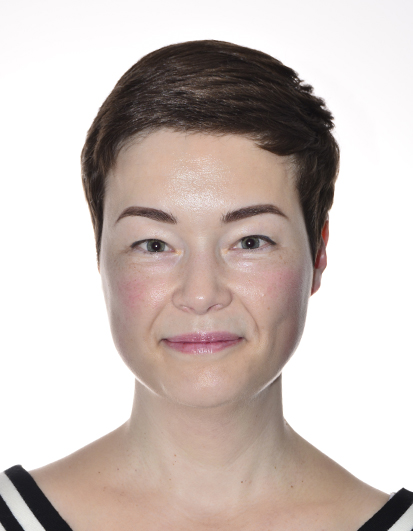
My research explores the experiences of belonging in the context of migration. How does one experience oneself both as a migrant and as (not)belonging? Using contemporary critical philosophical research methods, such as critical phenomenology and hermeneutics, my project examines the neglected question: What implicit assumptions about belonging are built into our regular understanding of the term ‘migrant’? I hypothesise that a negative idea of belonging constitutes our conventional understanding of what it means to be in ‘migration’ – an in-between state of not fully belonging anywhere. If my hypothesis is true, it means that the term ‘migrant’ is not a value-neutral description of someone’s situation in life. It carries complex socially constructed normative content with respect to what (and who) counts as fit for belonging and what ways of belonging are acceptable (and available). Considering the urgent relevance of migration to global co
Supervisor: Assistant Professor Lisa Foran
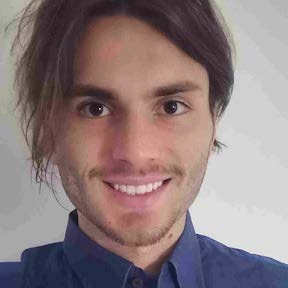
This research critically scrutinises the seminal contributions of Jürgen Habermas to the articulation of a communicative form of philosophical discourse. Emphasising the confutative nature of this method, the study meticulously explores its nuanced role in evaluating truth and normative rightness within diverse contextual frameworks of justification and signification. At the core of this approach lies the intricate interplay of dialogical and dialectical processes, encompassing the discursive practices of 'giving and asking for reasons' The examination delves into potential lacunae within Habermas's formal-pragmatic paradigm, particularly in his endeavours to grapple with the intricate issue of Truth through a pragmatic understanding of meaning and a consensual-discursive stance.
Supervisor: Associate Professor Joseph Cohen
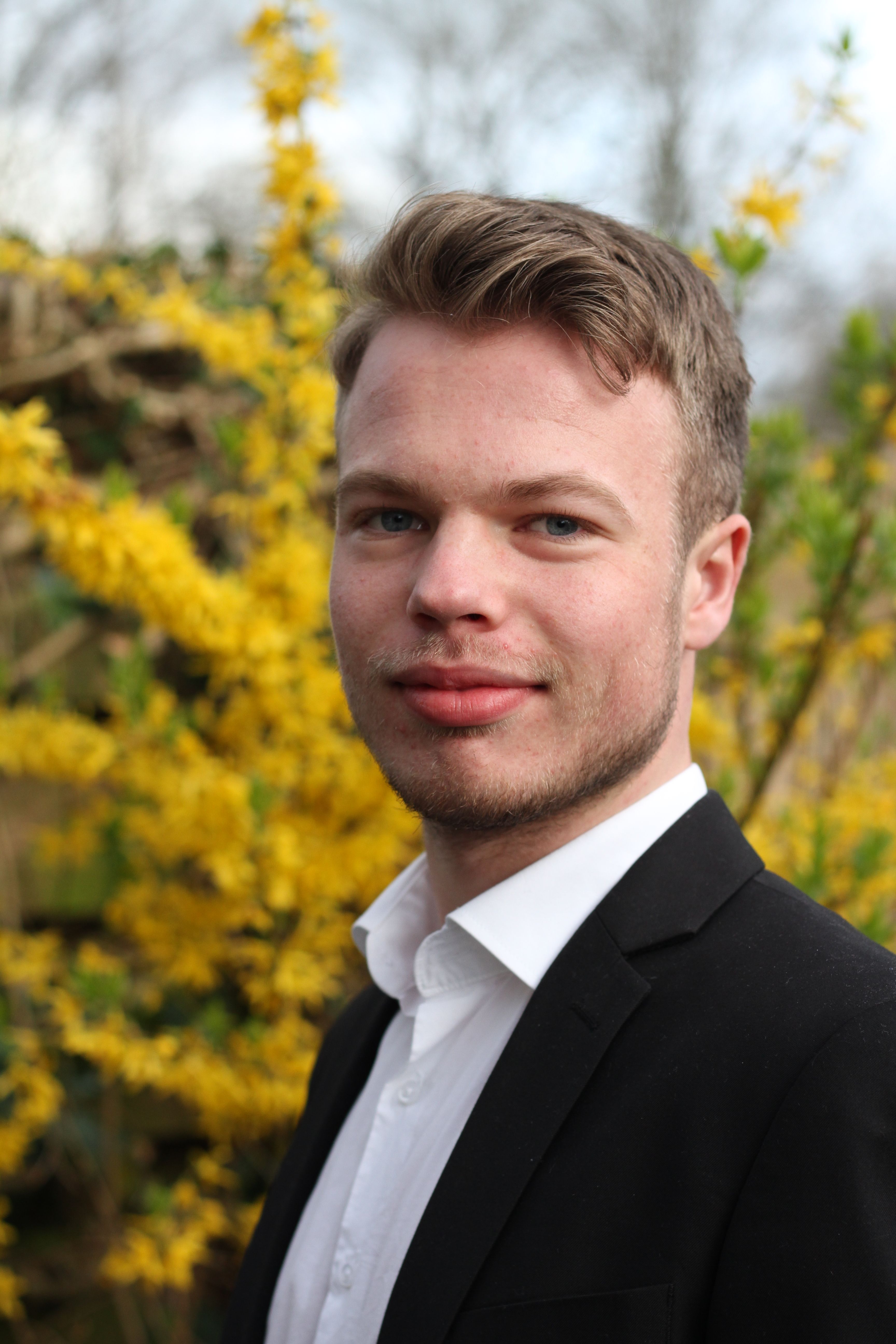
We are increasingly relying on scientific experts within democratic decision-making procedures. However, worries exist about whether depending on experts will empower an unelected elite, circumventing democratic accountability and stifling the voice of citizens — in essence, leading to the emergence of a technocracy. Another challenge comes from populist actors who reject experts and argue that a mystified and homogeneous “common will” should dictate all public decisions. Nevertheless, despite these concerns of empowering or rejecting experts, we need expert knowledge to make good public policies. So, how should experts be incorporated into democratic decision-making?
Supervisor: Professor Maria Baghramian
Supervisor: Assistant Professor Tim Crowley
Supervisor: Assistant Professor Tatjana von Solodkoff
Supervisor: Assistant Professor Lisa Foran
Max K. Feenan’s research proposes an investigation of the conceptualization of History (Geschichte) and Historicity (Geschichtlichkeit, literally 'historicalness') as theorised by the thinkers; Friedrich Schelling (1775-1854) and Martin Heidegger (1889-1976), both of whom - in different ways at different times - attempted to 'recreate' philosophy itself so that it be a science (Wissenschaft, scientia) capable of articulating our living reality. In so doing, both interwove a conceptual theory of temporality (Zeitlichkeit) with that of lived-empirical theory of history. Feenan’s interpretation of these Schelling and Heidegger’s work, their contexts, ambiguities, and even paradoxes, then proceeds to consider one philosophical question of universal significance; ‘what is history itself’?
Supervisor: Associate Professor Joseph Cohen
Supervisor: Assistant Professor Lisa Foran
Supervisor: Assistant Professor Danielle Petherbridge
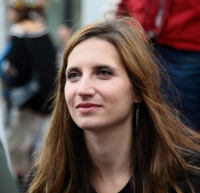
Supervisor: Assistant Professor Lisa Foran
Supervisor: Assistant Professor Danielle Petherbridge
Supervisor: Associate Professor Tim Mooney
Supervisors: Associate Professor Tim Mooney & Assistant Professor Åine Mahon
Supervisor: Assistant Professor Tatjana von Solodkoff

Supervisor: Assistant Professor Danielle Petherbridge
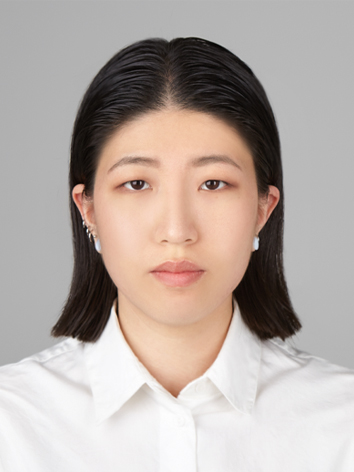
The aim of my thesis is to comparatively analyse T. W. Adorno and G. W. F. Hegel’s conceptions of the individual self and to offer a complementary reading of their ideas. The two axes of my discussion of the individual self in Adorno and Hegel are freedom and mediation. My argument consists of three steps. First of all, I establish that Adorno and Hegel, in critical response to Immanuel Kant’s account of the divided self, conceive of the individual self through mediation. Adorno subscribes to the Hegelian structure, in which the self is a mediation of thinking and being, individual and society. Second of all, I compare Adorno and Hegel’s diverging responses to Kant’s conception of individual freedom, and show how this is related to the problem of mediation. Against Kant who places freedom on the other side of the real world (noumena), Hegel formulates the logical structure of freedom as “being at home with itself” [Beisichsein] in the world.
Supervisor: Professor Brian O'Connor
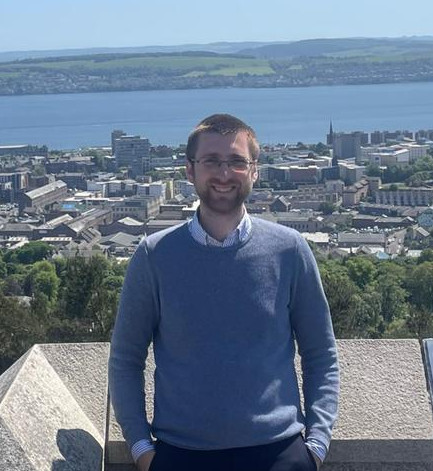
Supervisor: Associate Professor Joseph Cohen
Supervisor: Professor Brian O'Connor
Supervisor: Assistant Professor Elmar Unnsteinsson

Supervisor: Associate Professor Joseph Cohen
Supervisor: Assistant Professor Ruth Boeker
Supervisor: Assistant Professor Danielle Petherbridge

Recent developments in modern physics have led some theoretical physicists and philosophers of time to seriously consider the possibility that our world is fundamentally timeless – that in reality, there are no moments of time, no change, and nothing happens before or after anything else. Through my research, I aim to (1) provide a framework through which to judge whether proposed ‘timeless’ theories are timeless in any meaningful way, and (2) to determine the most pragmatically favourable standpoint to adopt were one to accept a timeless theory that proposes genuine timelessness.
Supervisor: Associate Professor Dan Deasy
Supervisor: Professor Maeve Cooke
Supervisor: Associate Professor Joseph Cohen
My research is an exploration of Nietzsche’s perspectives on life, aiming to demonstrate how his philosophy forms the basis for an affirmative understanding of human flourishing and serves as a response to nihilism. To achieve this objective, I have selected three distinct dimensions of life—morality, art, and play—which I argue correspond to the camel, the lion, and the child states in Nietzsche’s philosophy as articulated in Thus Spoke Zarathustra. I contend that these three concepts can constitute a comprehensive and cohesive framework for interpreting Nietzsche’s philosophy of life. While these three states do not exist concurrently or in parallel within Nietzsche’s philosophy of life, there is discernible continuity among them.
Supervisor: Associate Professor Joseph Cohen
Supervisor: Associate Professor Dragos Calma
Supervisor: Associate Professor Dragos Calma
Supervisor: Profesor Maeve Cooke
Supervisor: Assistant Professor Ruth Boeker
Supervisor: Professor Katherine O'Donnell
Supervisor: Assistant Professor Danielle Petherbridge
Supervisor: Associate Professor Joseph Cohen